Coronavirus: UK advice, symptoms, tests and treatment - in five graphics
- Published
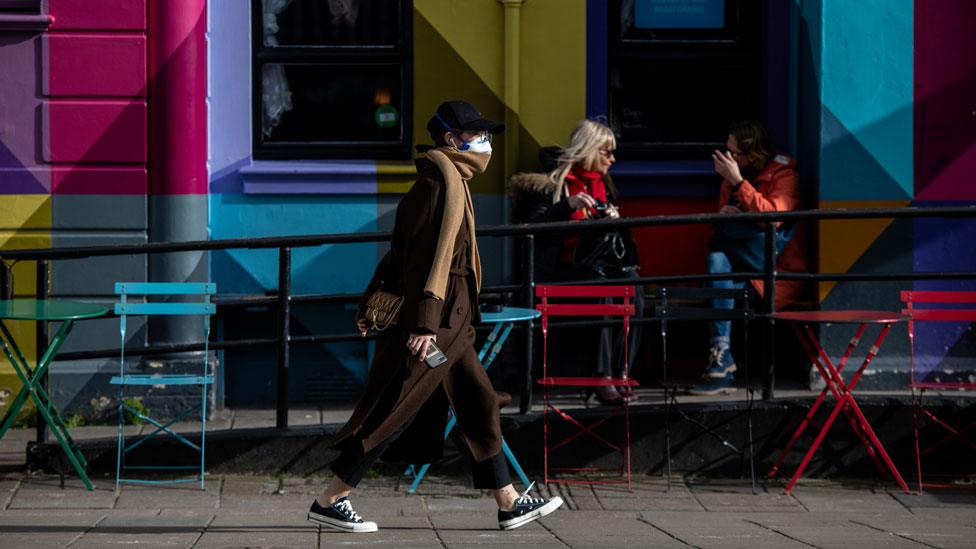
A respiratory infection originating in China and known as the "new coronavirus" is now spreading faster outside the country than inside. More than 80 countries have been affected, including the UK.
With further infections now likely, here are five graphics and the latest practical advice on what to do - based on information from the World Health Organization, Public Health England and the UK National Health Service (NHS).
How do I avoid getting it?
It is not yet known exactly how coronavirus spreads from person to person. However, similar viruses are spread via respiratory droplets, such as those produced when an infected person coughs or sneezes.
Therefore, there are things you can do to minimise your risk of catching it.
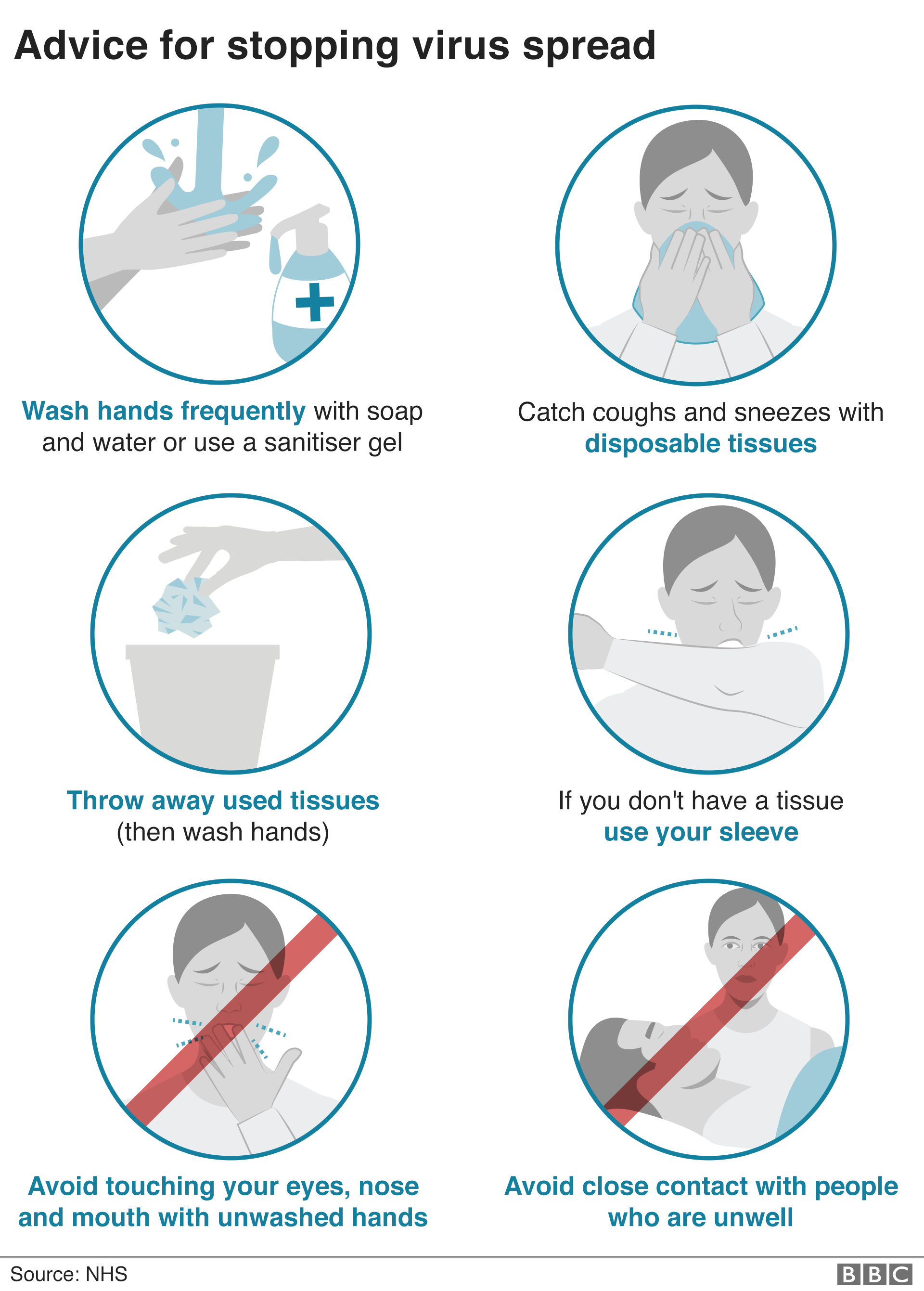

The NHS advises you, among other things, to wash your hands regularly, cover your mouth with a tissue when you cough or sneeze and avoid touching your eyes, nose or mouth if your hands are not clean.
You only need to stay away from public places if advised to by the NHS's specialist 111 online coronavirus service, external or by a medical professional.
There is currently no evidence that you can catch coronavirus from parcels and letters or from food. Viruses like coronavirus cannot live for very long outside the body.

Will I get it?
In the UK, the country's chief medical officers have raised the public risk level from low to moderate. But, the NHS says, the risk to individuals remains low., external
However, there are some countries and areas where there's a higher chance of coming into contact with someone with coronavirus.
Therefore, there is extra advice for UK travellers, external, including those who have returned from affected areas, including China, Italy and Iran.
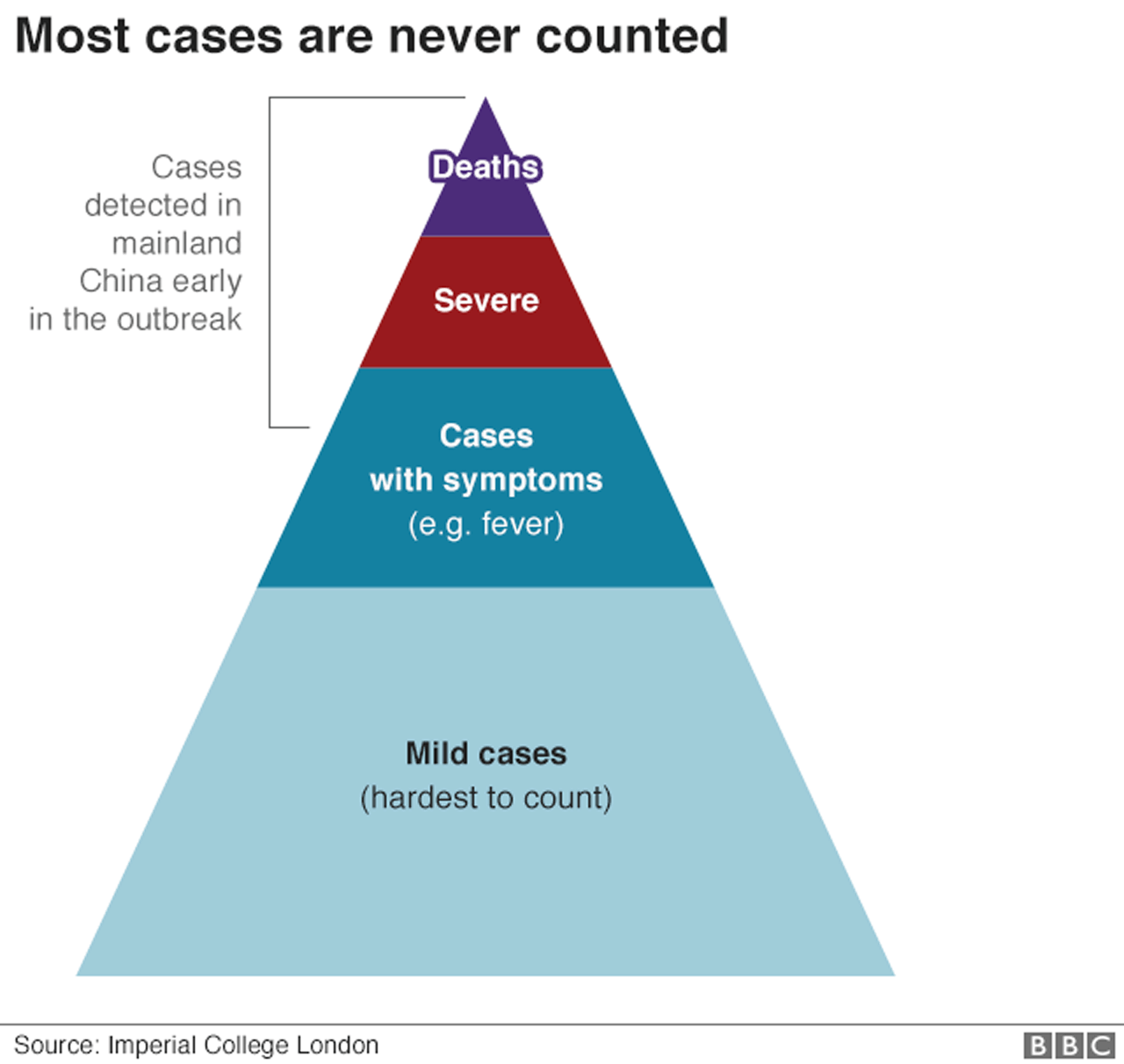
But even if you do get it, you are likely to experience mild symptoms and recover.
Scientists currently think the proportion of people dying from the disease is low (between 1% and 2%) and evidence suggests those who have died were elderly or had pre-existing conditions.
But with the virus in its early stages, and many milder cases not yet counted, the figures are still unreliable.

How do I know if I've got it?
The new coronavirus - often referred to as Covid-19 - seems to start with a fever, followed by a dry cough and then, after a week, leads to shortness of breath.
But these symptoms do not necessarily mean you have the illness.
The symptoms are similar to other viruses that are much more common, such as colds and flu.
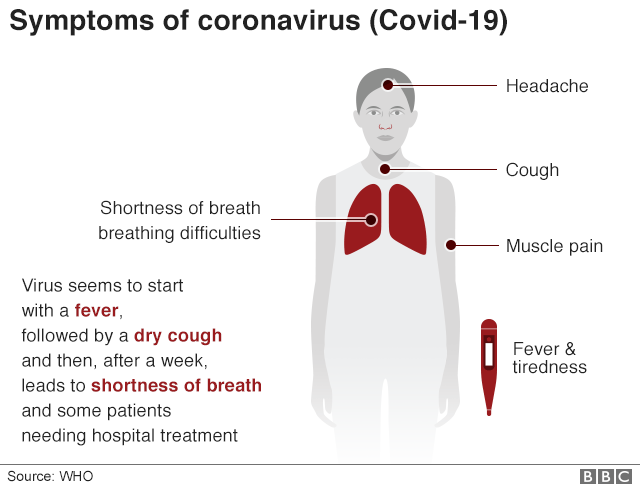

In more severe cases of Covid-19, infection can cause pneumonia, severe acute respiratory syndrome, kidney failure and even death.
Older people, and people with pre-existing medical conditions (such as asthma, diabetes, heart disease) are more likely to become severely ill.

What should I do if I think I've got it?
If there's a chance you could have coronavirus, you are advised not to go to a GP surgery, pharmacy or hospital.
Instead, the NHS says you should contact its dedicated 111 online coronavirus service, external, operating in England, Scotland, Northern Ireland and parts of Wales, which can tell you if you need medical help and advise you what to do next.
You should contact the NHS 111 service if:
You think you might have the virus
You've been to Cambodia, China, Hong Kong, northern Italy, Iran, Japan, Laos, Macau, Malaysia, Myanmar (Burma), Singapore, South Korea, Taiwan, Thailand or Vietnam in the past 14 days
You've been in close contact with someone with coronavirus
As a result, you may be asked to stay away from other people (self-isolate). You may also be passed onto your local health protection team for testing.
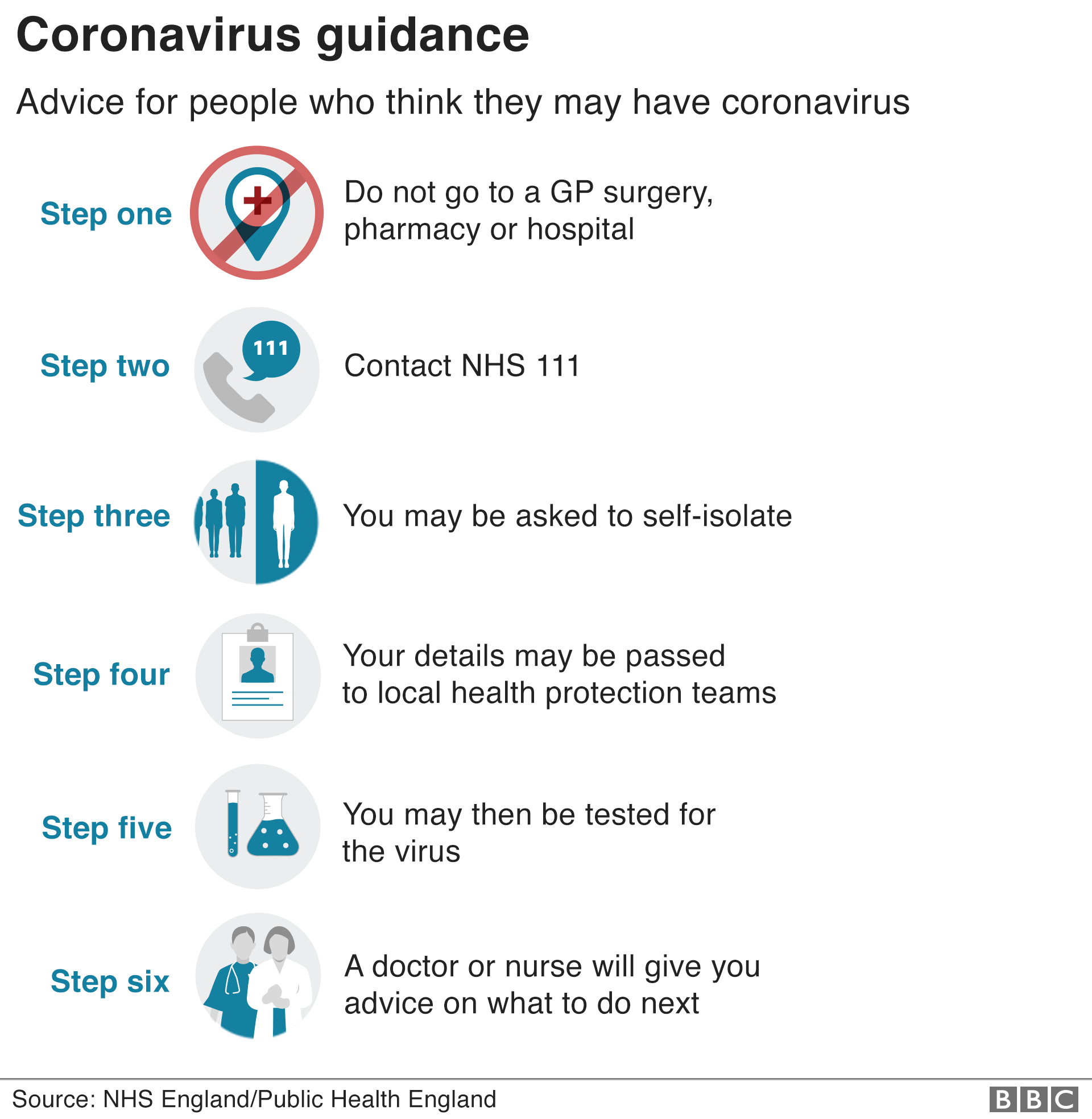


Will I be tested - and how?
You only need to be tested for coronavirus if you have been to certain affected areas within a certain time period, external or you have been in close contact with someone with confirmed coronavirus.
But if health professionals think you could have coronavirus, you will be put in touch with your local health protection team and directed to a testing location.
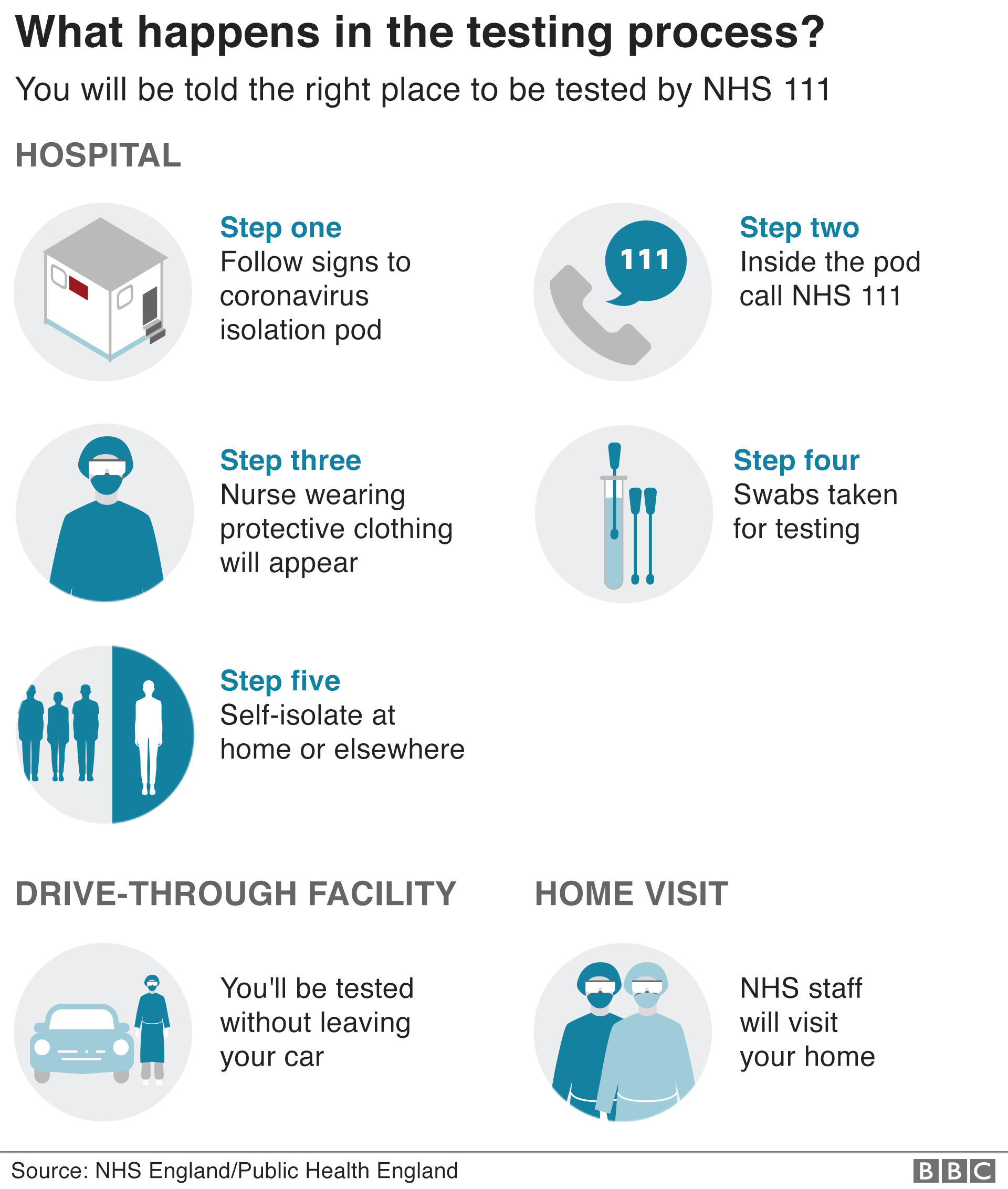

Here, health professionals will take some samples. This may include:
Mucus from your nose, throat or lungs
Blood
Faeces
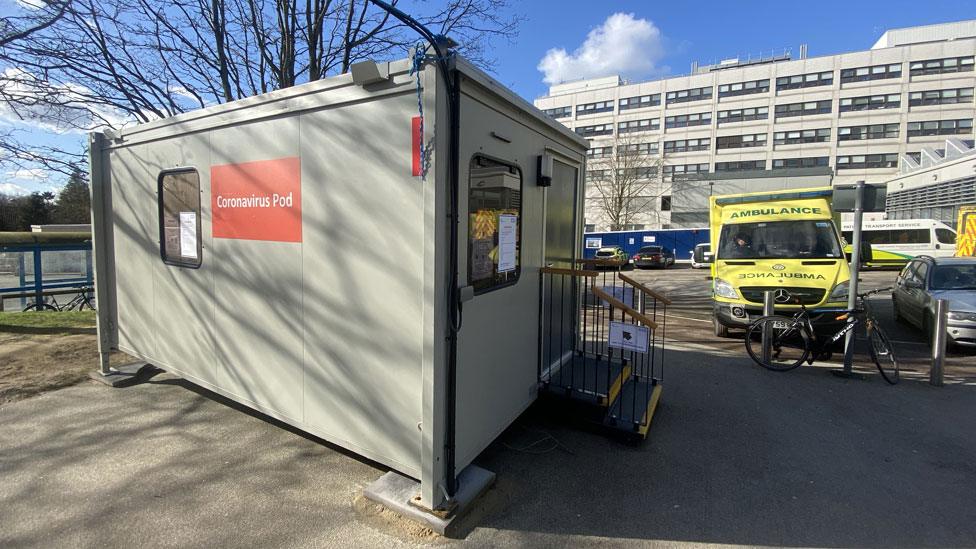
Coronavirus pod at The John Radcliffe Hospital, Oxford
Samples will then be sent to specialist testing laboratories. Results may be available on the same working day.
While you await your test results, you may be asked to stay at home and follow advice for "self-isolation", external.

What do I do if I have to 'self-isolate'?
You may be asked to stay at home and avoid contact with other people if you have travelled to certain affected areas of the world,, external if you have been in close contact with someone with coronavirus or are awaiting test results.
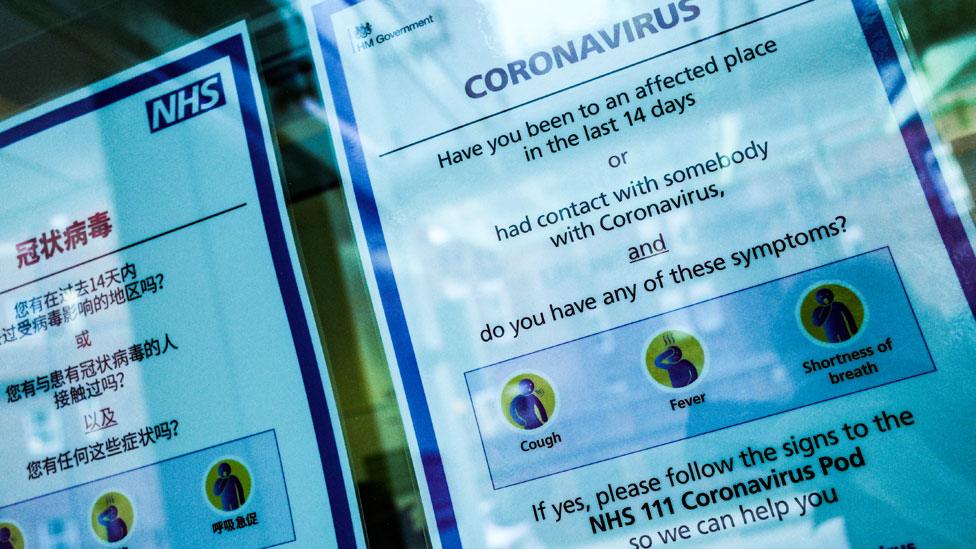
This means you should:
Stay at home
Not go to work, school or public areas
Not use public transport like buses, trains, tubes or taxis
Avoid visitors to your home
Ask friends, family members or delivery services to carry out errands for you - such as getting groceries, medication or other shopping
You should make sure any items delivered are left outside, or in the porch, or as appropriate for your home.
If you live with other people, you may have to take extra measures to reduce the chances of onward infection,, external such as staying in a separate room and regularly cleaning shared kitchens and bathrooms.
You may need to do this for up to 14 days to reduce the possible spread of infection.

If I test positive, what will happen then?
There is currently no specific treatment for coronavirus, but you may receive treatment to relieve the symptoms while your body fights the illness.
You'll need to stay in isolation away from other people until you've fully recovered.
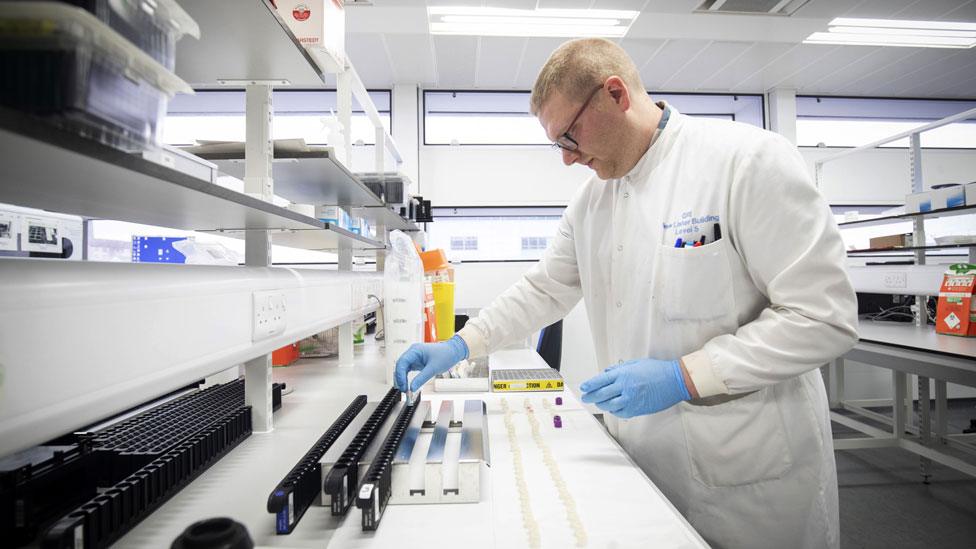
Work to develop a vaccine is under way and it is hoped there will be human trials before the end of the year.
Some hospitals are also testing anti-viral drugs to see if they have an impact.
- Published5 July 2022

- Published24 March 2020
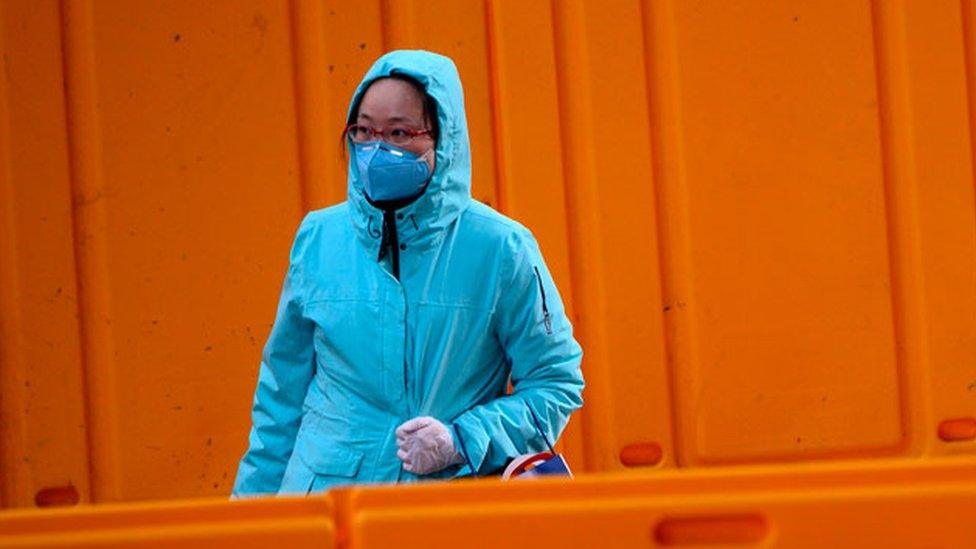
- Published23 March 2020
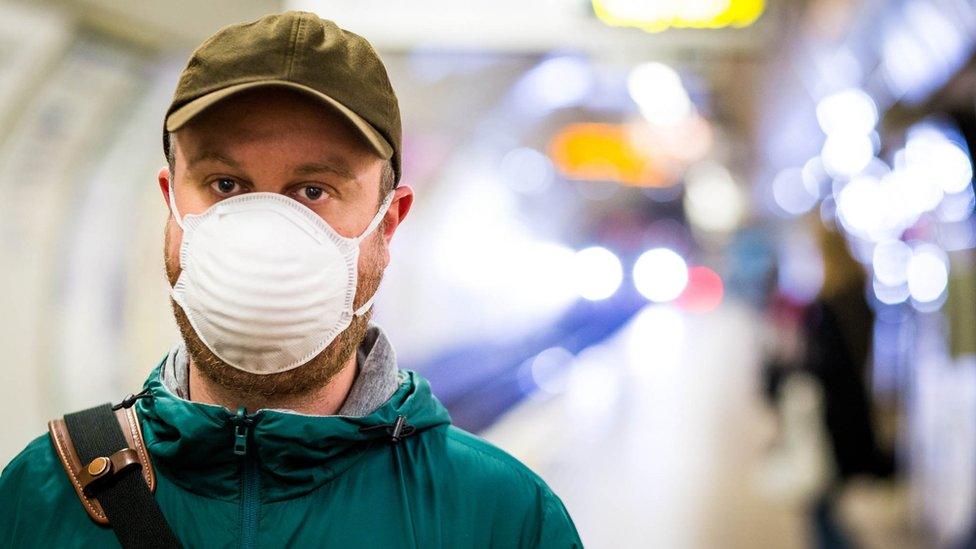
- Published6 October 2021
